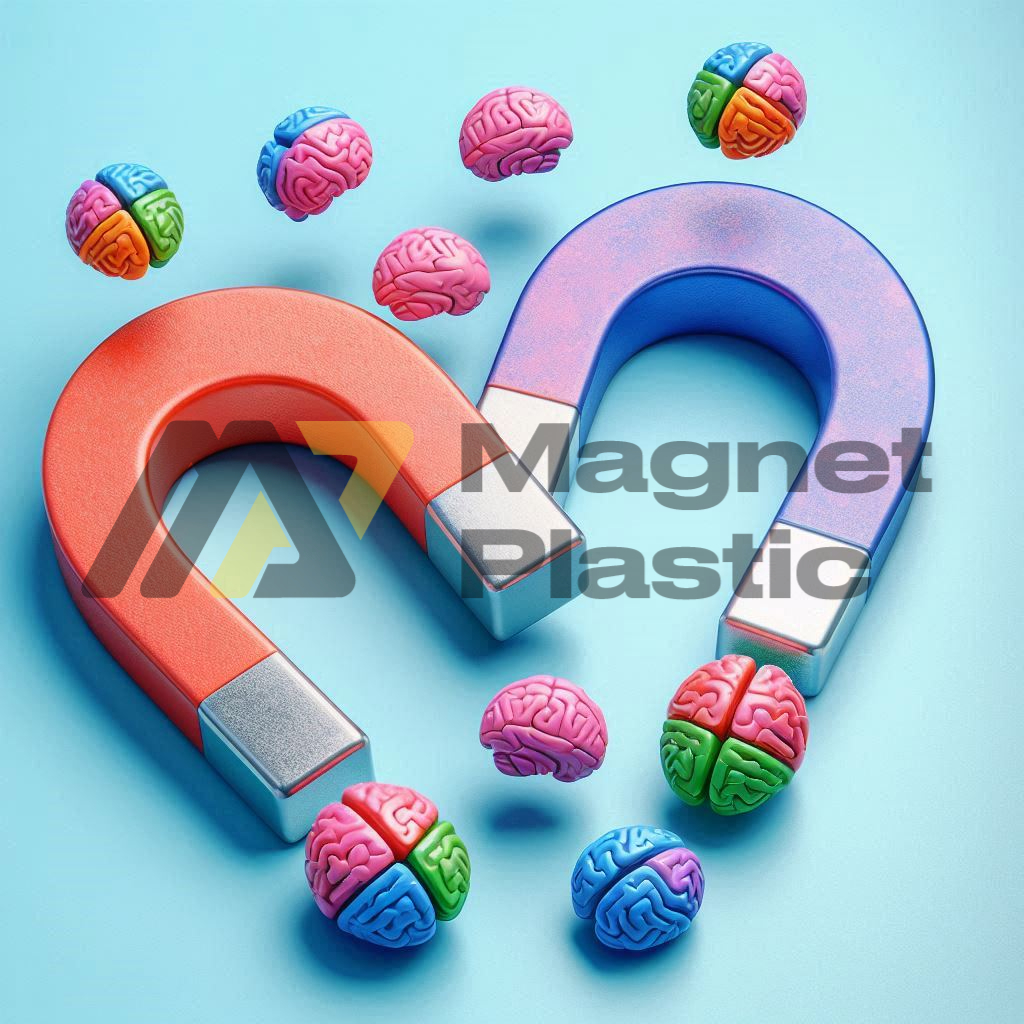Magnets in the Mental Health Industry
The mental health industry has experienced remarkable advancements in recent decades, driven by the integration of new technologies to treat various psychological and neurological conditions. Among these innovations, magnets have emerged as crucial tools, opening new possibilities for patients and professionals. This article explores how magnets are revolutionizing the mental health industry, enhancing both the diagnosis and treatment of mental disorders.
Transcranial Magnetic Stimulation (TMS)
Transcranial magnetic stimulation (TMS) is one of the most promising applications of magnets in mental health. This non-invasive technique uses magnetic fields to activate specific areas of the brain and is effective in treating treatment-resistant depression, anxiety disorders, and other psychiatric conditions.
During a TMS session, an electromagnetic device is placed on the scalp, generating magnetic pulses that induce electrical currents in the neurons. These pulses can modify brain activity, helping to restore normal functioning patterns. TMS has been approved by the FDA and is becoming a popular option due to its effectiveness and safety.
Magnetic Therapy for Stress and Anxiety
In addition to TMS, magnets are being used to manage stress and anxiety. Portable magnetic devices that apply low-intensity fields are designed for home or clinical use, providing relief to individuals with chronic stress or anxiety.
These devices work by emitting magnetic fields that influence neuronal activity and the release of neurotransmitters such as serotonin and dopamine. Although research in this area is in its early stages, preliminary results suggest that magnets could offer a non-pharmacological alternative for these issues.
Innovations in Diagnosis and Monitoring
In the diagnosis and monitoring of mental disorders, magnets play an essential role. Functional magnetic resonance imaging (fMRI) uses magnetic fields to measure brain activity in real-time, allowing researchers and clinicians to observe how the brain responds to different stimuli.
fMRI has been crucial in identifying brain biomarkers associated with disorders such as depression, schizophrenia, and bipolar disorder. These discoveries are facilitating the development of more personalized and effective treatments.
The Future of Magnets in Mental Health
The future of magnets in the mental health industry is promising. Research in magnetic technologies is continually advancing, with new applications and improvements to existing treatments on the horizon. For example, combinations of TMS with other therapies, such as psychotherapy and medication, are being explored to enhance treatment outcomes.
Moreover, the miniaturization of magnetic devices and the integration of artificial intelligence technologies are creating new opportunities for the development of personalized therapies. These advances enable more precise interventions tailored to the individual needs of patients.
Conclusion
The role of magnets in the mental health industry is transformative, offering innovative solutions for the diagnosis and treatment of mental disorders. From transcranial magnetic stimulation to functional magnetic resonance imaging, these technologies are improving our understanding and ability to treat complex brain conditions. As research progresses and technologies develop, magnets will continue to be an indispensable tool in enhancing mental health and overall well-being.
